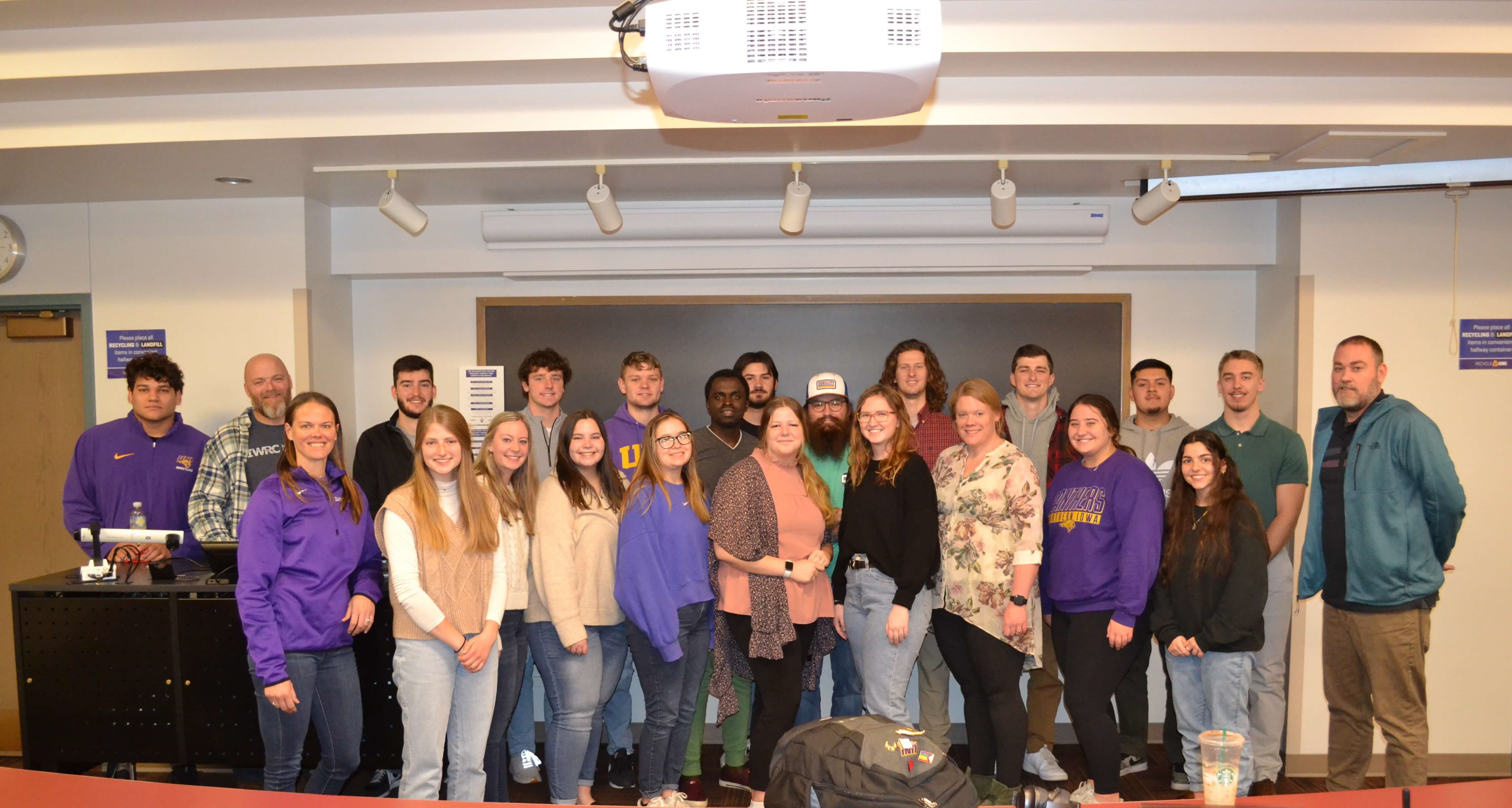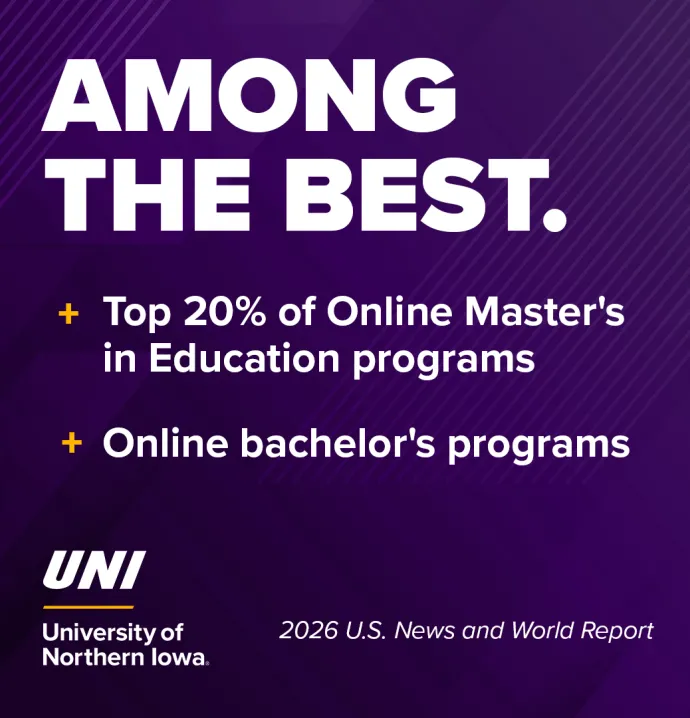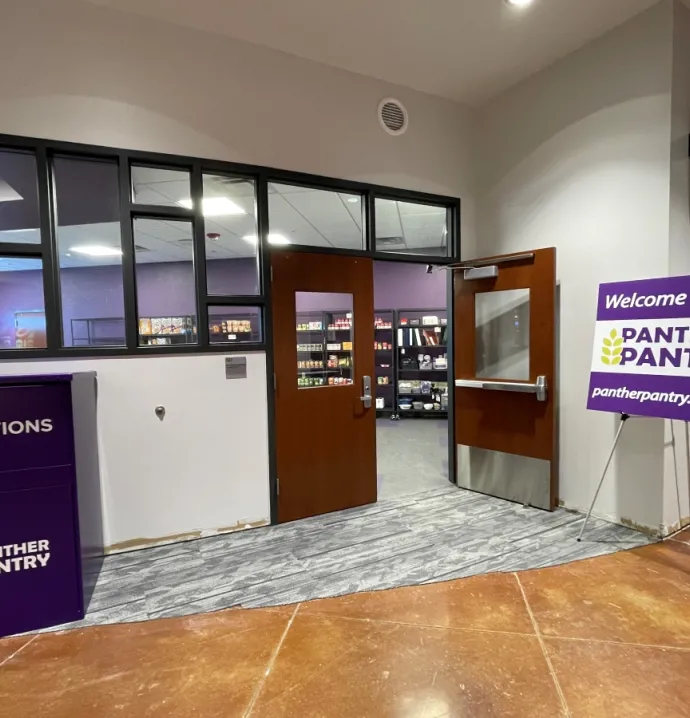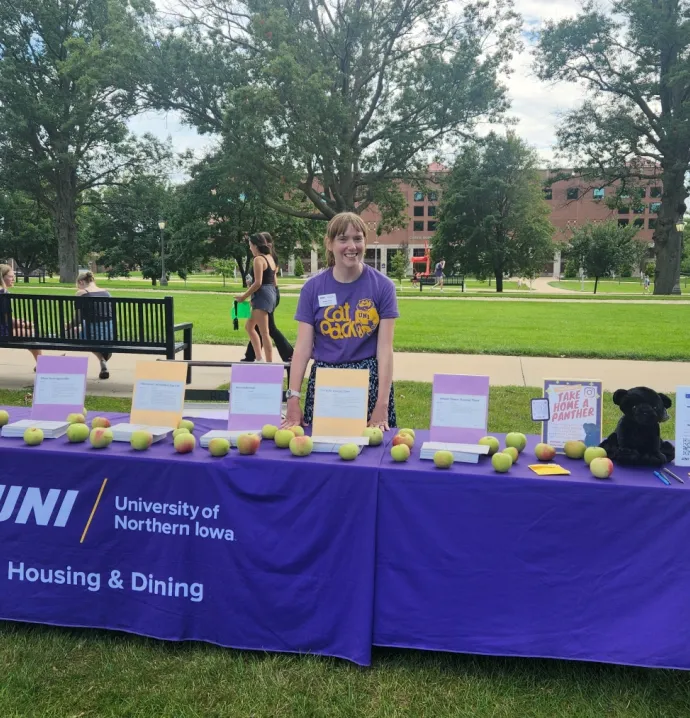UNI's Economics of Sustainability class teams up with STAR4D for impact
UNI's Economics of Sustainability class teams up with STAR4D for impact
December on a college campus in Iowa brings cooler temperatures, an increase in caffeinated beverages (usually warm) and a dedicated study spot in the library to prep for those pesky finals.
For the students in Alicia Rosburg’s Economics of Sustainability class, their final project was the culmination of research, analysis and problem-solving resulting in recommendations to address a real-world problem for a real-life client.
Service learning
At UNI, service-learning is a class-based experience, co-created with community partners, intended to expand and deepen discipline-specific knowledge and skills, strengthen the community and develop a student’s sense of civic responsibility. The objective of any service-learning project is to engage students in a real-world problem-solving exercise with the goal of providing the partnering community organization with a service or helpful outcome.
On Oct. 6, 2023 the students were introduced to their community partner, the Iowa Waste Reduction Center’s Spray Technique Analysis and Research for Defense. Better known as STAR4D, the program identifies the concerns of the military refinishing industry and is the premier comprehensive coating applicator training program in the United States for the Department of Defense (DoD) and its contractors. This program trains spray technicians on safer practices, as well as on strategies and techniques that will enable them to:
- Use less coating
- Improve finish quality
- Reduce the environmental impact
- Reduce costs
- Help facilities meet mission readiness.
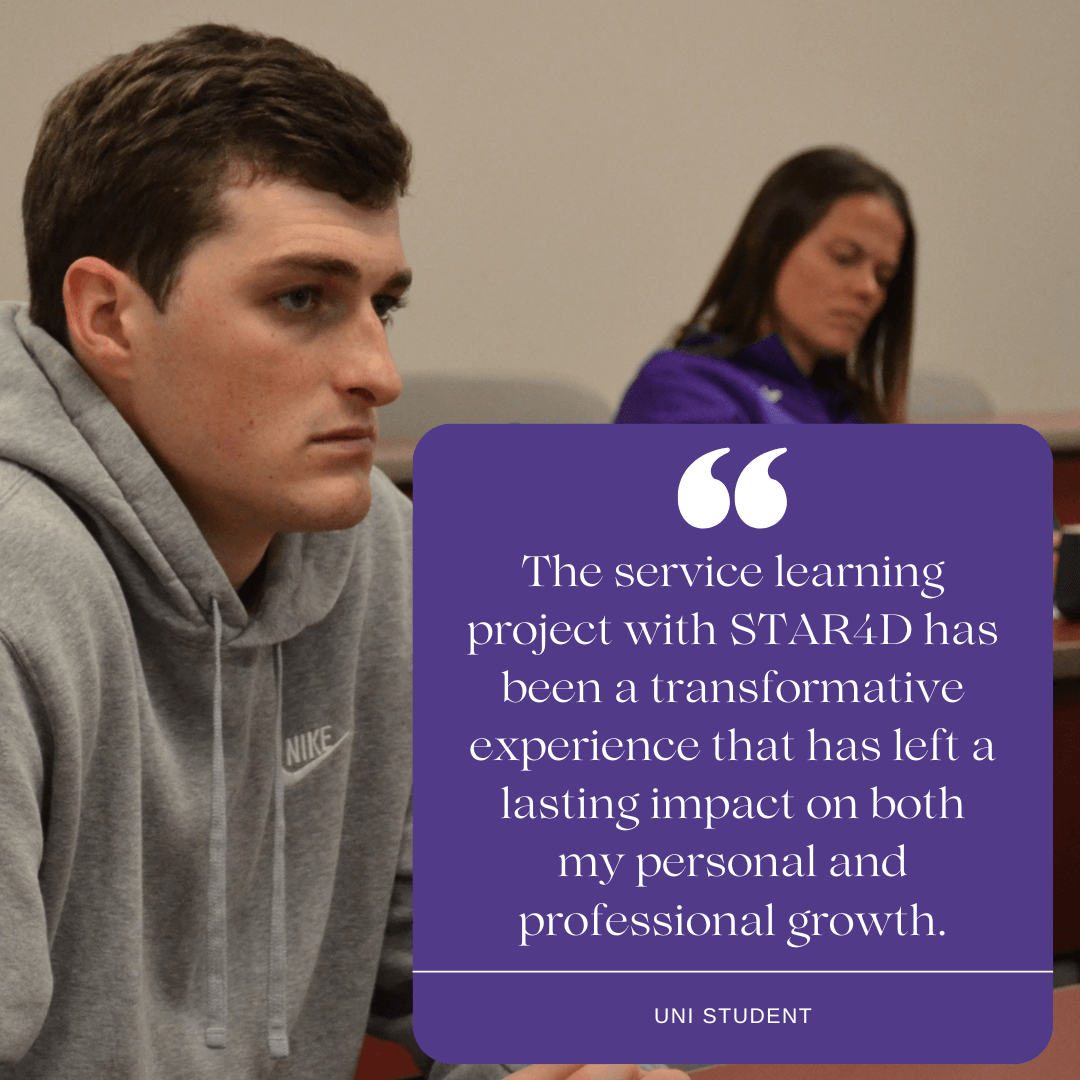
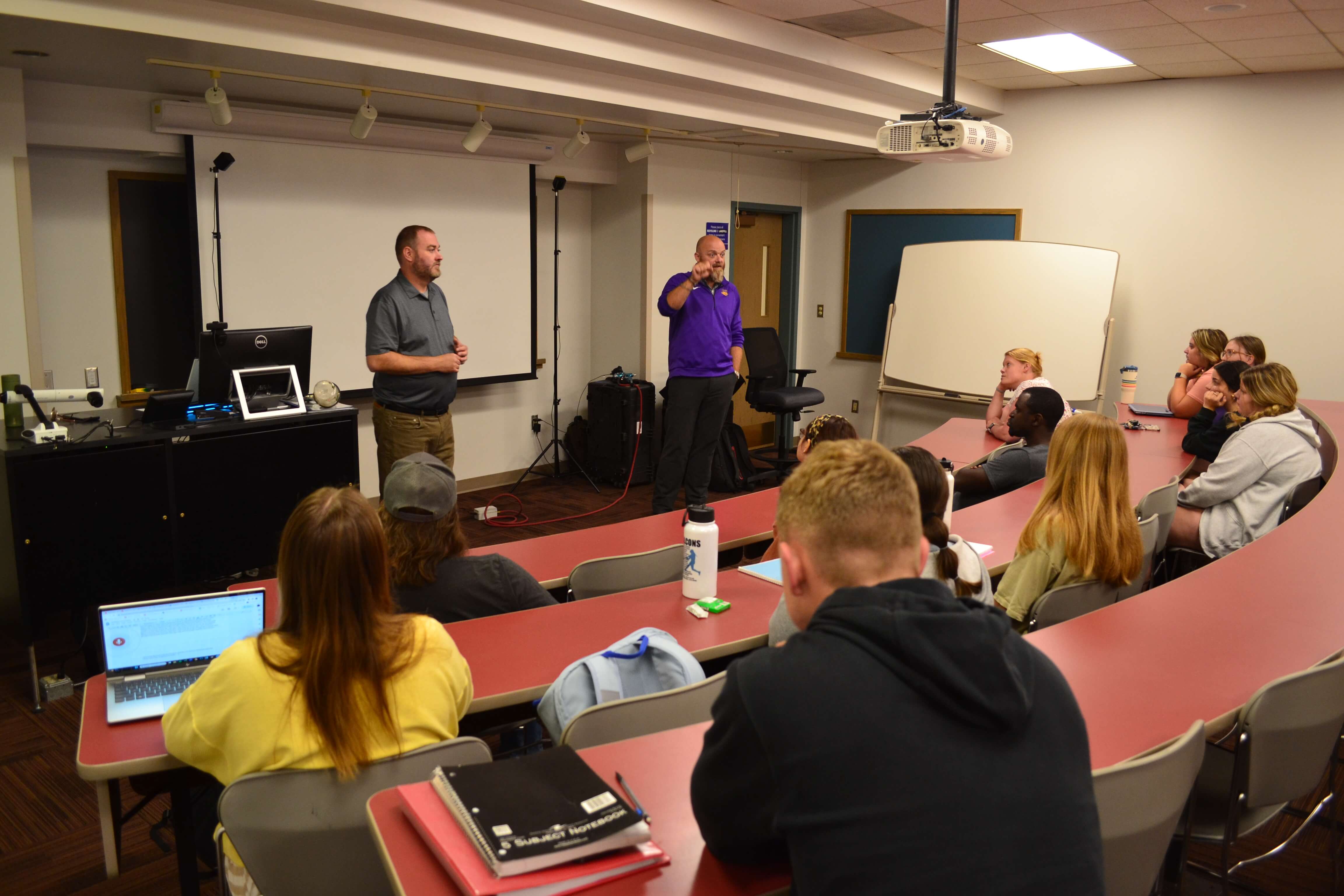
STAR4D program manager Chris Lampe and IWRC Director Joe Bolick presented an overview of the STAR4D program and provided students with an opportunity to try the VirtualPaint System.
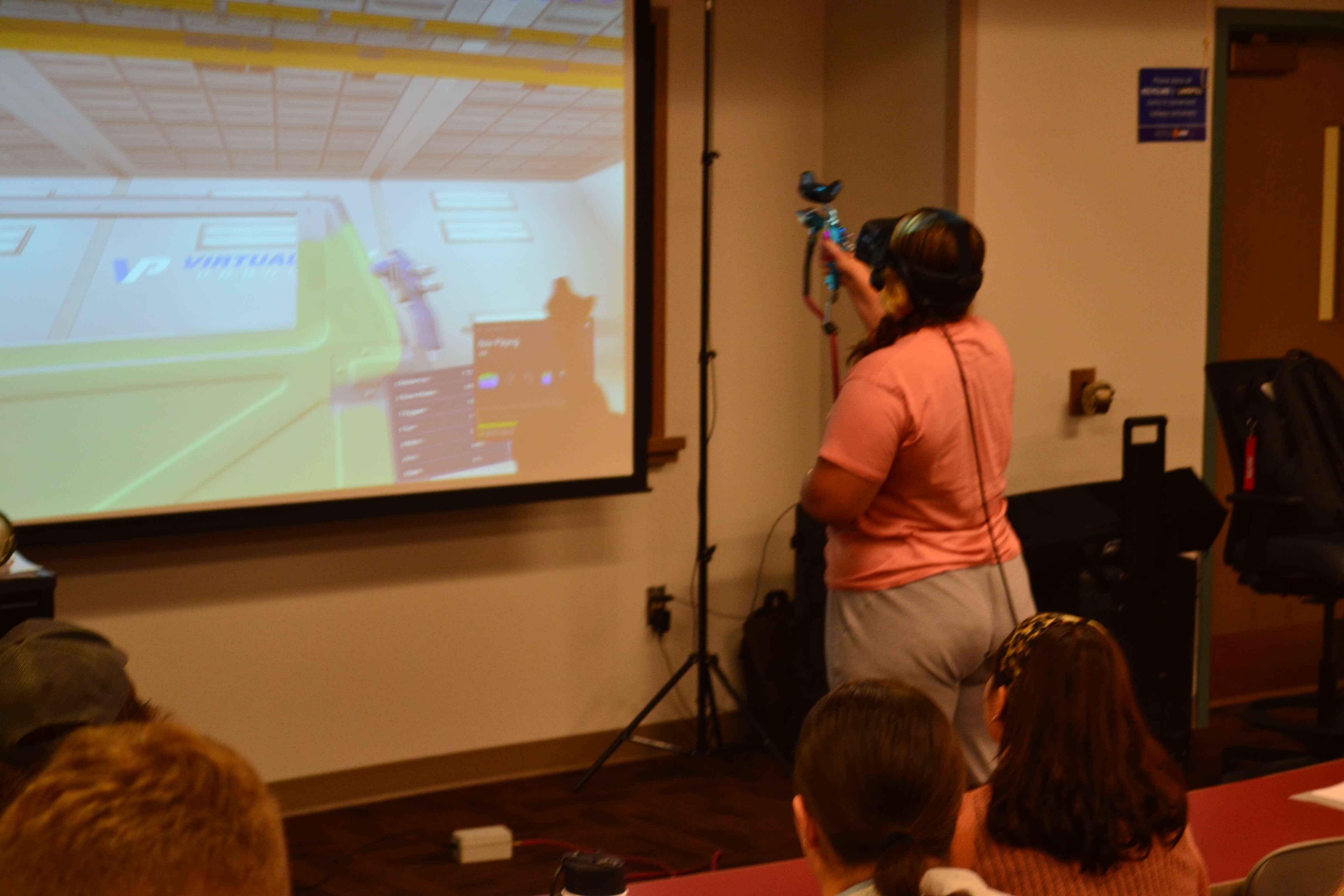
Students asked great questions pertaining to data collection, the program’s successes and challenges, target audience and so on. All information gathered would help them in their final project.
Project
The class was split into four groups and directed to select a topic based upon the client’s needs and/or challenges and conduct thorough research and analysis. Based upon the research, each group was to develop recommendations to STAR4D that addressed the identified need or challenge. A final presentation to the client was the last order of business. On Dec. 8, 2023, the class reconvened to present their recommendations to Bolick and Lampe.
Each group delivered a 8-10 minute presentation outlining their topic they had selected, the research conducted, and the resulting recommendations. While each group brought their own unique perspective on STAR4D’s programming, the recommendations brought forth centered either on enhancing or requiring certain components of the training program to ensure and/or improve ROI, or exploring new markets in an effort to “meet the painters where they are'' and test out new revenue streams.
Reflection
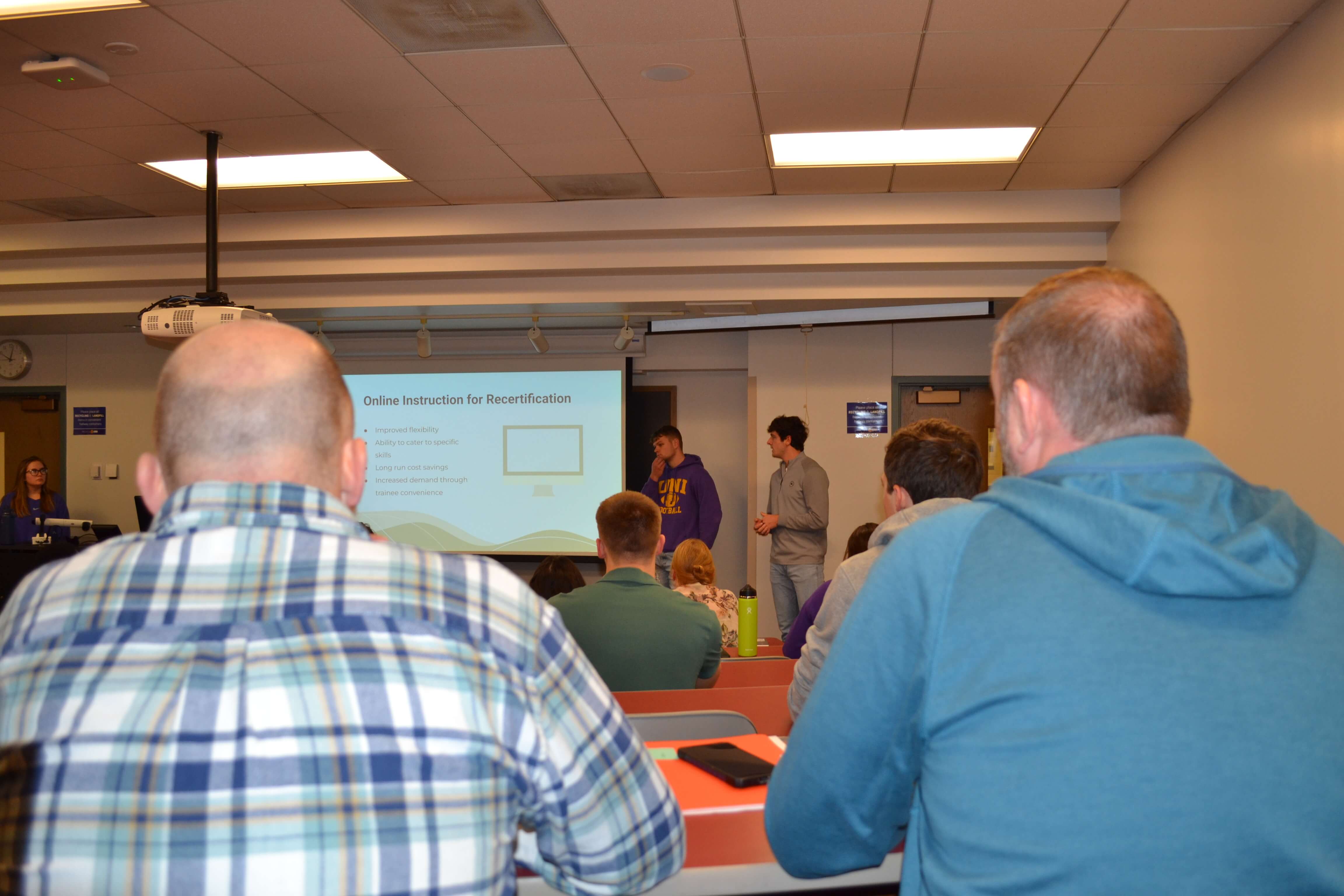
This project was not an easy undertaking, as STAR4D is a very well established program built off of efficiency. As one student described, “It was difficult to improve upon the program as it was already built to be efficient, but I enjoyed the challenge.”
From the client’s perspective, Lampe and Bolick found the effort the students made to think outside the box, conduct phone calls and look for data outside the STAR4D program to be refreshing and greatly appreciated. Several of the students acknowledged that the restrictions imposed by the client (e.g., no internet connection, can’t interrupt production, limited space) and the requirements of certain elements of the training were difficult to work around or find solutions for. This got a reaffirming smile from Lampe and Bolick as these are challenges they deal with on a daily basis.
Despite the challenges, the end result of the service-learning partnership was a valuable experience for all parties involved. In the final reflection the students were asked to complete, one student commented, “This project made me realize that a single organization has the ability to change the practices of multiple businesses in all parts of the country to make them more sustainable.” If nothing else had been achieved through this project, that statement would have been enough.
Since the final presentation, STAR4D has begun the process of identifying and exploring new markets.
STAR4D and IWRC would like to thank Alicia Rosburg, PhD, and her fall 2023 Economics of Sustainability class for selecting us as their community partner.
